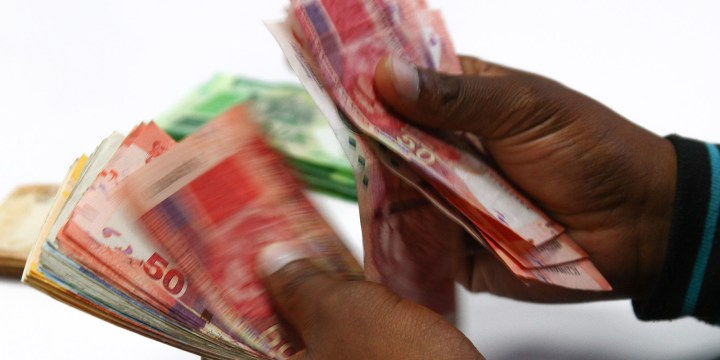WAGE TALKS
Government proposes below consumer inflation pay rise for public servants

The government has proposed an average 4.7% increase in the pay of public servants for the 2023/24 fiscal year, followed by adjustments in 2024/25 and 2025/26 that are linked to the expected consumer inflation rate. But trade unions representing public servants are already planning to embark on a strike over pay talks for 2022.
The government has proposed increasing the pay of South Africa’s 1.2-million public servants by 4.7% in 2023 and urged their trade union representatives to return to a multi-year agreement framework on compensation in the state sector.
On Friday, 17 February, at the Public Service Coordinating Bargaining Council (PSCBC), the government tabled a draft agreement spelling out the adjustments to the pay of public servants over the next three years. The PSCBC is where the government and trade unions negotiate the conditions of employment in the public sector.
In a copy of the draft agreement obtained by Business Maverick, the government has proposed an average 4.7% increase in pay for public servants for the 2023/24 fiscal year, followed by adjustments in 2024/25 and 2025/26 that are linked to the expected consumer inflation rate. The government has suggested a sliding scale of pay adjustments, with the lowest-earning public servants receiving a higher percentage increase in their pay, and the highest-paid servants receiving a lower percentage adjustment.
For example, the lowest-paid public servants (categorised in salary levels/bands one to three) stand to receive a double-digit percentage increase in their pay of between 10.2% and 14.5% in 2023, with increases of between 1.9% and 3.1% for highest-paid public servants (categorised in salary levels/bands 10 to 12).
It is not clear how much the average 4.7% increase in the pay of public servants will cost the government to implement. More details on the compensation of public servants and how the government plans to fund pay adjustments will be unveiled by Finance Minister Enoch Godongwana when he presents the Budget on Wednesday, 22 February.
Economists and credit ratings agencies are closely watching the negotiations around the compensation of public servants because reining in the cost is seen as key to stabilising government finances. In recent years, the government has refused to give into the pay demands of trade unions because it wants to reduce the cost of compensation, which at a projected R699.8-billion during its 2023/24 fiscal year is the single-largest component of its total expenditure. This cost is expected to rise to R729.6-billion in 2024/25 and R763.6-billion in 2025/26.
As many as nine trade unions were previously part of the PSCBC pay discussions including the National Education, Health and Allied Workers’ Union (Nehawu), Public Servants Association of South Africa (PSA), the South African Democratic Teachers Union (Sadtu), the SA Policing Union (Sapu), the Police and Prisons Civil Rights Union (Popcru), the Democratic Nursing Organisation of SA (Denosa), the National Union of Public Service and Allied Workers Union (Nupsaw), the SA Medical Association Trade Union (Samatu) and the SA Emergency Personnel’s Union (Saepu).
Visit Daily Maverick’s home page for more news, analysis and investigations
The unions are yet to formally respond to the government’s pay rise proposal and even table their own demands for 2023. The relationship between the government and most trade unions has deteriorated in recent years, which has made it difficult for both parties to reach an agreement on pay and other remuneration benefits.
Most of the unions at the PSCBC are still disgruntled about the government’s decision to unilaterally implement a below consumer inflation pay increase of 3% in 2022. The unions had demanded a 10% increase, citing the rapidly rising cost of living as seen in the inflation rate, which reached 6.9% in January 2023.
The unions, including Nehawu, Sapu, Popcru, Denosa, Samatu and Saepu, plan to serve the government with a seven-day strike notice because their pay demand for 2022 was rejected by the government. They want the impasse over pay for 2022 resolved before negotiations on pay for 2023 can start. But other trade unions, including Sadtu, Naptosa, Satu and PSA have broken ranks as they have accepted the government’s 3% pay increase and don’t have an appetite for a prolonged strike.
A significant change in the government’s approach to pay negotiations this year is that it wants to sign a three-year or multiyear agreement with trade unions, instead of concluding a single-year agreement. In the past, trade unions and the government preferred to conclude a multiyear wage agreement, covering at least three years. Multiyear agreements allow the government to plan for how much it will be on the hook for in terms of compensation payments over long periods and help it to raise money to fund compensation agreements.
But since the government reneged on its promise to award public servants pay increases in 2020, trade unions haven’t trusted that it will uphold and comply with multiyear agreements. This was after the Constitutional Court ruled that the government could renege on a multiyear agreement if it could not afford to comply with it.
Read more in Daily Maverick: “Big victory for the state as unions lose bid to force public sector wage increases”
So, a multiyear agreement has not been concluded and a single-year agreement has become the norm. DM/BM



















“… a strike over pay talks for 2022.”????